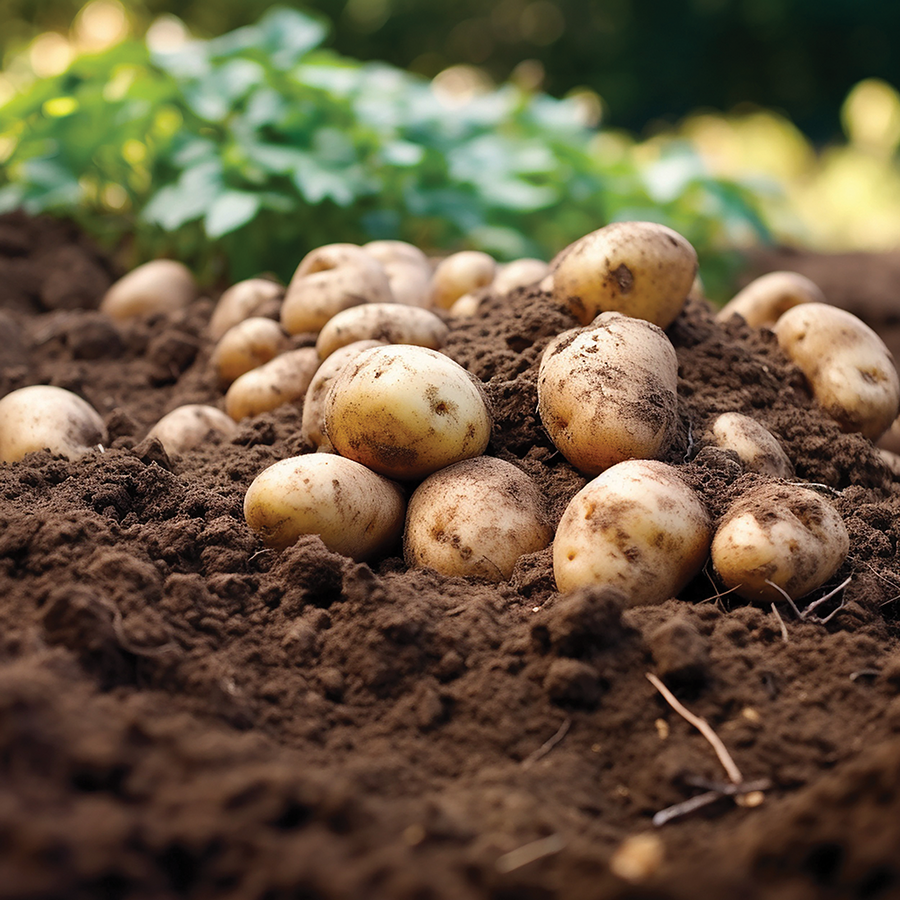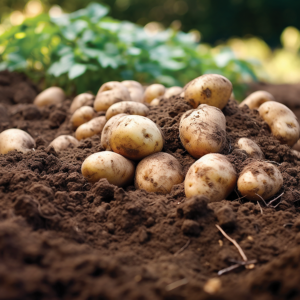
Spuds surviving game of Whac-A-Mole in federal nutrition policy
When I started working with the National Potato Council in 2011, the potato was under siege. By the way that nutritionists, policymakers, and the White House talked about the inherent, insidious evils of potatoes, the reputation of the humble spud was at an all-time low.
As a result, we were fighting public relations and advocacy wars on multiple fronts.

USDA had proposed limiting potatoes in school lunches and all but eliminating them from the school breakfast program. The Special Supplemental Nutrition Program for Women, Infants and Children program — better known as WIC — had prevented participants from using vouchers to purchase fresh white photos – the only fresh fruit or vegetable restriction on the books. And a cornerstone of first lady Michelle Obama’s Let’s Move! program included restricted access to potatoes to combat childhood obesity.
We had our backs up against the wall and few allies to which to turn for support.
Here are just two news headlines we were up against during those years: “Proposal to Cut Back on Potatoes in Schools Causes a Food Fight” – Wall Street Journal; “Women And Children Caught in Middle of Potato War – NPR and Lawmakers Defend French Fries as USDA Limits Spuds” – The Associated Press.
Obama took to the pages of The New York Times to denounce “anti-science” members of Congress who wanted to let WIC recipients stretch their vouchers to purchase nutrient-rich, family-pleasing and cost-effective potatoes via the program.
“The House of Representatives is considering a bill to override science by mandating that white potatoes be included on the list of foods that women can purchase using WIC dollars,” she wrote.
It’s important that we reflect on those dark years to see how far this industry has come. Thanks to the advocacy efforts of NPC, our state partners, and the coalition of pro-potato allies we have built on Capitol Hill, we’ve not only been able to fend off attacks against the reputation of potatoes, but we’ve also gone on the offensive.
Each year in USDA’s appropriations bill, report language is now included that prevents the department from enforcing regulations that would limit potatoes in the school lunch program.
We’ve also prevented USDA from completely eliminating potatoes from the school breakfast program, although we are still fending off proposals that would place arbitrary limits on potato servings.
In mid-April, USDA issued a final rulemaking codifying the eligibility of fresh white potatoes in the WIC program.

A WELCOME DECISION
The 180-degree turnaround by USDA officials was cheered by NPC.
“The final WIC rule combines common sense with nutritional facts around the importance of potatoes in the diets of all Americans, including food-insecure mothers and their children,” said Bob Mattive, president of NPC and Colorado potato grower. “This rule represents decades of effort and countless meetings between U.S. potato growers and decision-makers in Washington, D.C., and we want to thank all those who helped move the needle on this important priority.”
During the WIC battles, NPC pointed out numerous inconsistencies with the program’s anti-potato stance. First, with only 2% of the U.S. population meeting USDA’s own daily recommendations for potassium and dietary fiber, why would WIC prevent WIC participants from purchasing a vegetable rich in those nutrients of concern? Second, when Americans are under-consuming all vegetables, why would USDA discourage the purchase of a vegetable that people of all ages eat and enjoy? And the biggest head-scratcher of all: Why could WIC vouchers be used to purchase fresh potatoes at a farm market but not at a grocery store?
Individually, these inconsistencies could be considered programmatic oversights. But taken together, it was obvious that the real goal was to use the heavy hand of the federal government to limit potato consumption — a goal shared by some influential nutrition activists.
Over time — armed with consumption facts, nutrition science and common sense — NPC turned the tide against WIC’s potato ban, culminating in the final rulemaking we saw in April.
Normally, we would take a moment to celebrate a success two decades in the making. However, some of the same activist voices from the past are forcing us to defend against new attempts to impair the standing of potatoes in our diets, via reclassifying them out of the vegetable category or making them interchangeable with grains in the upcoming Dietary Guidelines for Americans (DGA) report.
This new attempt is a tactical shift but not a strategic one by anti-potato activists. Their long-standing goals remain the same: limiting the access of potatoes in federal nutrition programs and changing the way that nutritionists think about America’s favorite vegetable.
We may have come a long way since 2011, but NPC continues to play Whac- A-Mole in D.C. to defend a vegetable that contributes so much to America’s economy and dinner tables.
Mark Szymanski is communications director for the National Potato Council and CEO of Evocati Public Relations.







